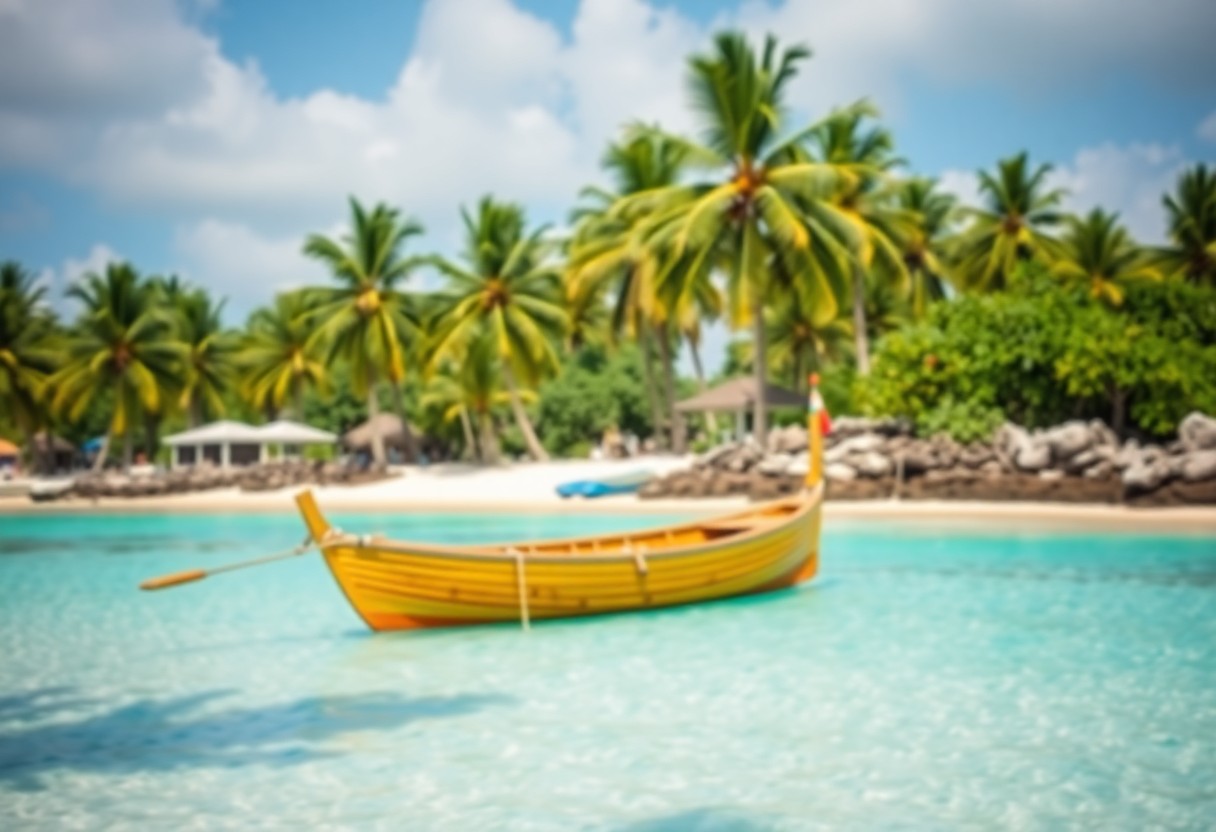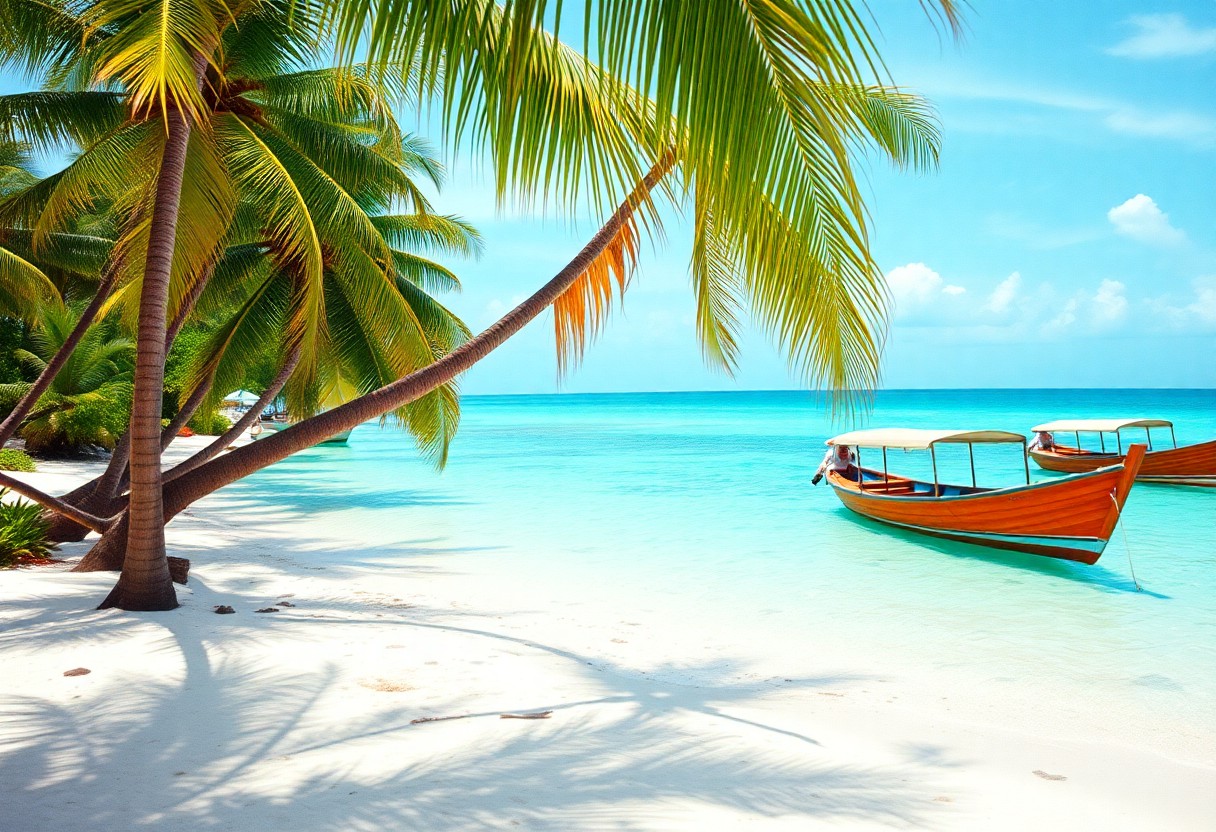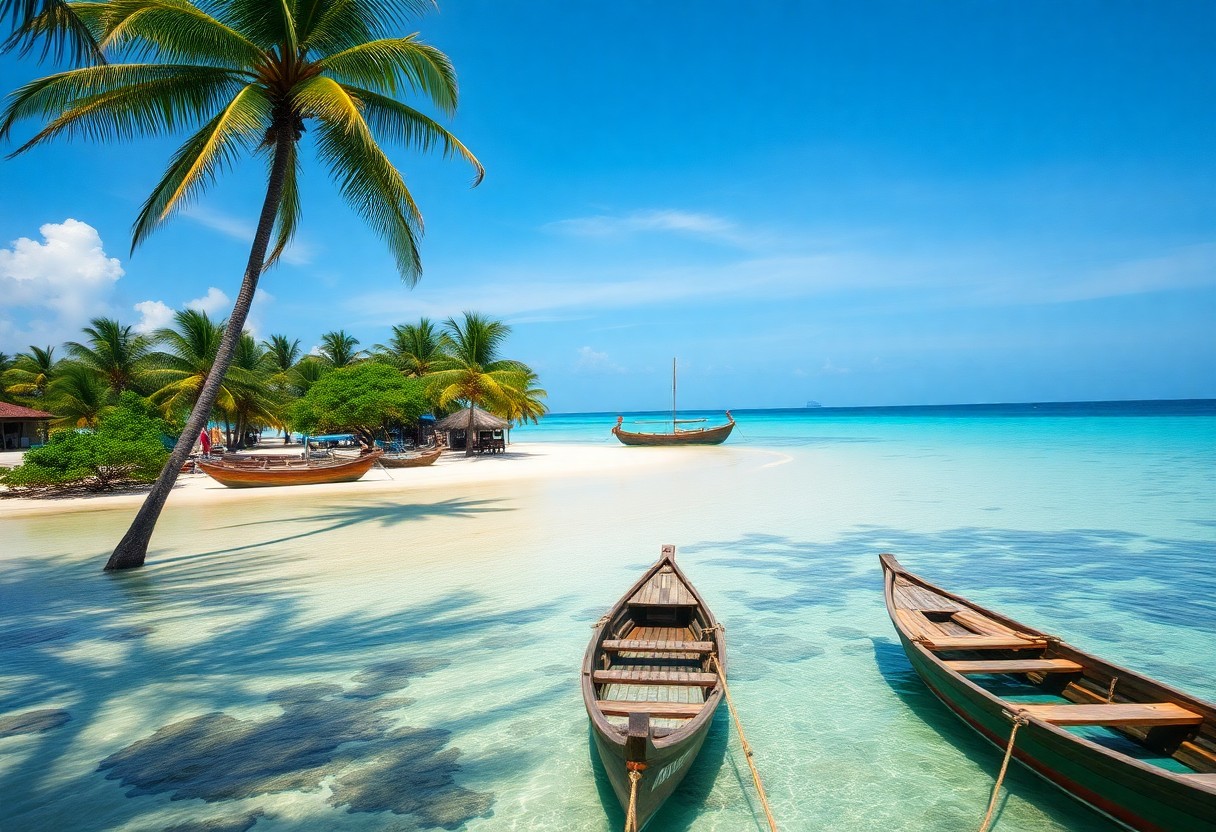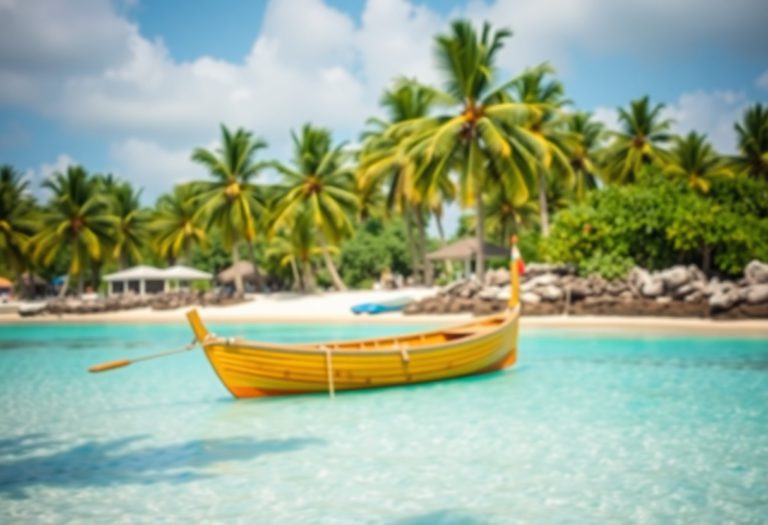Many individuals are captivated by the distinctive geographical location of Belize within the broader context of the Caribbean region. It is fascinating to note that while Belize is positioned along the Caribbean coastline, its classification involves a more intricate understanding than a straightforward answer. Geographically, Belize resides in Central America, bordered by Mexico to the north and Guatemala to the west. Its eastern shoreline is graced by the breathtaking Caribbean Sea. Culturally, Belize embodies profound Caribbean influences that are evident in its language, music, and traditions, beautifully merging with its rich Central American heritage. Exploring Belize reveals a captivating intersection of geographical boundaries and cultural identities that defy conventional categorization, showcasing a rich tapestry of both historical and contemporary influences.
Understanding the Complexities of Caribbean Cultural Identity
Your perception of the Caribbean must extend beyond simple geographical demarcations. The term represents a complex interplay of historical, cultural, and geographical factors that collectively shape this vibrant region. While conventional definitions may appear straightforward, the identity of the Caribbean is nuanced and multifaceted, encouraging a deeper exploration of what genuinely constitutes this dynamic geographical and cultural space. By delving into its rich history and diverse cultures, you can genuinely appreciate the Caribbean’s unique position in the world—one that transcends borders and encompasses a myriad of experiences and identities that shape its collective narrative.
Examining the Geographic Classification of Caribbean Nations
Geographically, the Caribbean typically refers to the island nations and coastal territories that encircle the Caribbean Sea. This classification includes prominent countries such as Jamaica, Cuba, and the Dominican Republic. However, the distinctive location of Belize on the western Caribbean coastline challenges this conventional boundary, presenting an intriguing geographical puzzle that warrants thoughtful consideration. Belize’s unique geographical characteristics compel a reevaluation of the traditional definitions of Caribbean nations, as they illuminate the intricate connections and distinctions that exist within this vibrant region, prompting scholars and enthusiasts alike to reconsider the dynamics of Caribbean classification.
Exploring Belize’s Cultural Connections to the Caribbean
At first glance, Belize may appear separate from other Caribbean nations. However, a deeper exploration reveals a rich cultural tapestry that shares significant similarities with Caribbean communities. Historical colonial influences, linguistic diversity, and shared economic experiences transcend strict geographical definitions, showcasing how Belize interweaves with the broader Caribbean narrative. The cultural landscape of Belize not only reflects its unique identity but also highlights its interconnectedness with the Caribbean, fostering a sense of unity among diverse populations across the region. This invites visitors to experience a rich blend of cultures that characterize Belize.
Moreover, the cultural fabric of Belize showcases a profound Caribbean heritage. You will uncover a vibrant mix of Creole, Garifuna, Mestizo, and Maya influences, reflecting the multicultural essence of Caribbean societies. These cultural connections extend well beyond mere borders, emphasizing Belize’s deep-rooted ties to the broader Caribbean community through shared traditions, music, culinary delights, and historical experiences that unify the region. This interconnectedness enriches the cultural landscape, offering visitors a unique opportunity to engage with the vibrancy of Caribbean heritage firsthand, thus making Belize a true melting pot of cultures.

Uncovering Belize’s Distinctive Role in the Caribbean Community
As you delve into Belize’s regional identity, you will discover that it occupies a unique position that effectively bridges Central America and the Caribbean. Although geographically situated in Central America, Belize maintains significant cultural and political connections with Caribbean nations, complicating its regional classification beyond a simple geographical definition. This multifaceted identity highlights how Belize navigates its dual heritage, embodying characteristics of both Central American and Caribbean cultures, thereby creating a rich and diverse national identity that reflects the complexities of its historical context.
Belize’s Engaged Role in CARICOM
Belize’s membership in the Caribbean Community (CARICOM) solidifies its credentials as a Caribbean nation. As a full member, Belize enjoys diplomatic, economic, and cultural ties with other Caribbean countries, enhancing its regional identity and fostering collaboration. This membership underscores the significance of regional cooperation, enabling Belize to engage in collective efforts aimed at addressing shared challenges and promoting sustainable development across the Caribbean. Through CARICOM, Belize participates in a broader dialogue about regional identity, unity, and cooperation, reinforcing its position within the Caribbean context and emphasizing the importance of solidarity among nations.
Exploring Shared Afro-Caribbean Heritage
The historical connections between Belize and other Caribbean nations run deep, rooted in their shared Afro-Caribbean heritage. A significant portion of the Belizean population traces its ancestry to African descendants brought to the region during the colonial era, establishing a profound cultural resonance with other Caribbean societies. This shared heritage is reflected in various aspects of Belizean life, including language, music, and communal traditions, which serve as a testament to the enduring legacy of African cultures in the Caribbean. By recognizing these ancestral ties, you can appreciate the richness of Belize’s cultural identity and its integral role in the broader Caribbean narrative, emphasizing the collective history that binds these nations.
Diving Deeper into Belize’s Cultural Connections
Beyond ancestral ties, the cultural landscape of Belize illustrates strong Caribbean influences in its music, cuisine, language, and social practices. The prevalence of Creole culture, along with similar linguistic patterns and shared historical experiences of colonialism and slavery, further intertwines Belize with the broader Caribbean cultural narrative. These influences manifest in vibrant festivals, culinary traditions, and artistic expressions that reflect a unique blend of cultural heritage. By exploring these cultural dimensions, you gain insight into how Belize’s identity is shaped by the rich tapestry of Caribbean influences that continue to thrive in its society, inviting exploration and understanding.

Revealing the Richness of Belize’s Cultural and Musical Heritage
The cultural landscape of Belize undeniably reflects a vibrant fusion of Caribbean, Central American, and indigenous traditions. You will discover a rich musical heritage that artfully combines African, Garifuna, Creole, and Maya influences, creating a unique soundscape that transcends traditional geographical boundaries. This musical diversity not only showcases Belize’s cultural richness but also emphasizes its deep connections with Caribbean musical traditions, highlighting how these influences have shaped the country’s artistic expression while maintaining its Central American roots, making Belize an essential player in the cultural dialogue of the region.
Celebrating the Vibrant Punta Genre in Belizean Music
The Punta genre, which originates from the Garifuna community, stands as a significant representation of Belizean musical expression. You will be mesmerized by its rhythmic beats and dynamic dance movements that celebrate the rich African and indigenous cultural roots. This genre serves as a powerful cultural marker, connecting you to the deep historical traditions of Belize’s coastal communities. Through Punta, you can appreciate how music serves as both a form of artistic expression and a means of preserving cultural identity, reinforcing the vibrant cultural landscape of Belize and inviting dialogue about its cultural significance.
The Impact of Reggae and Soca on Belizean Cultural Identity
Reggae and soca music resonate deeply throughout Belize, reflecting the country’s intrinsic Caribbean cultural connections. You’ll encounter these genres during local celebrations, on radio stations, and throughout lively street festivals, showcasing how musical styles transcend strict geographical definitions. The popularity of reggae and soca underscores Belize’s cultural affinity with Caribbean nations, illustrating how music serves as a bridge connecting diverse cultures and experiences. Influences from Jamaica and Trinidad have profoundly shaped Belize’s musical landscape, highlighting the interconnectedness of Caribbean societies through shared musical traditions, creating a vibrant atmosphere that invites participation and appreciation.
Moreover, reggae and soca are not merely entertainment genres; they embody historical migrations, cultural exchanges, and shared experiences that define the region’s rich musical heritage. By engaging with these musical forms, you can gain a deeper understanding of Belize’s cultural identity and the broader Caribbean narrative that continues to evolve through music and artistic expression, offering a unique perspective through which to view the region’s complexities.
Developing Strategic Approaches to Tourism and Marketing in Belize
Despite its unique positioning between Central America and the Caribbean, Belize has strategically developed a tourism strategy that highlights its geographical diversity and cultural richness. The country’s tourism sector leverages its distinctive blend of Mayan heritage, marine ecosystems, and lush tropical landscapes to attract international visitors seeking authentic and multifaceted experiences. By promoting its unique offerings, Belize aims to position itself as a premier destination for travelers interested in exploring both its natural beauty and rich cultural heritage, thereby enhancing its global appeal and market presence.
Innovative Marketing Strategies to Showcase Belize’s Treasures
In addition to traditional marketing approaches, Belize has embraced innovative digital campaigns that effectively showcase its ecological diversity and cultural uniqueness. These campaigns emphasize eco-tourism, adventure travel, and sustainable experiences, setting Belize apart from other Caribbean and Central American destinations. By utilizing modern marketing strategies, Belize aims to reach a broader audience and attract travelers who prioritize sustainability and authentic cultural experiences, further enhancing its appeal as a diverse and vibrant tourist destination that resonates with contemporary travel preferences.
Shaping International Perception of Belize as a Unique Travel Destination
Among international travelers, Belize is increasingly recognized as a destination that offers more than just typical beach tourism. The country has successfully positioned itself as an ecologically conscious and culturally rich destination, appealing to travelers seeking meaningful and immersive experiences. To understand Belize’s market perception, it is essential to appreciate the complex narrative the country has constructed around its identity. You’ll find that international tourists view Belize as a destination that seamlessly blends Caribbean relaxation with Central American adventure, creating a unique travel proposition that attracts diverse traveler segments interested in biodiversity, archaeological sites, and marine exploration.

Addressing Unique Challenges and Seizing Opportunities in Belize
Unlike many Caribbean nations, Belize faces unique geographical and cultural complexities that shape its regional identity. Its position as a bridge between Central America and the Caribbean presents both opportunities and challenges for national development. The country must navigate intricate political, economic, and cultural landscapes while striving to maintain its distinctive character and seeking meaningful regional integration. By addressing these challenges proactively, Belize can capitalize on its unique position and foster sustainable growth that benefits its diverse population while enhancing its standing in the international community.
Confronting Environmental Challenges in Belize’s Valuable Ecosystems
With rising sea levels and the increasing impacts of climate change, Belize confronts significant environmental challenges that threaten its natural heritage. The nation’s coastal ecosystems, including its renowned barrier reef, are particularly vulnerable to environmental shifts and human activities. These ecological pressures necessitate innovative conservation strategies and sustainable development approaches to protect Belize’s rich biodiversity and natural resources. By prioritizing environmental stewardship, Belize can safeguard its unique ecosystems while promoting sustainable tourism and development practices that benefit both its economy and the environment, ensuring the preservation of its natural assets for future generations.
Enhancing Economic Development Through Strategic Opportunities
By leveraging its diverse resources and strategic geographical location, Belize seeks to enhance its economic potential. Opportunities exist in tourism, agriculture, and emerging sectors such as sustainable development. The country aims to diversify its economic base while preserving its unique cultural and environmental assets. Belize’s economic landscape represents a complex interplay of traditional industries and emerging opportunities. Tourism remains a primary economic driver, with eco-tourism and cultural experiences attracting international visitors eager to explore Belize’s natural beauty and rich heritage. Agriculture, particularly the production of sugar, citrus, and marine products, continues to play a significant role in the national economy. Additionally, Belize is exploring digital economy sectors and sustainable development initiatives to create new economic pathways for its population, thereby fostering economic resilience.
Exploring Belize’s Multifaceted Cultural Identity
Ultimately, you’ll find that Belize occupies a unique position straddling Central America and the Caribbean region. While geographically situated on the Central American mainland, the profound Caribbean cultural influences are evident through language, cuisine, and historical connections that permeate Belizean society. Your exploration of Belize reveals a complex identity that transcends simple geographical categorization. You’ll recognize how its English-speaking heritage, vibrant Creole culture, and maritime traditions align closely with Caribbean nations, even as its physical location suggests otherwise. By delving into Belize’s multifaceted nature, you gain insight into the nuanced ways national and regional identities are formed beyond strict territorial boundaries, enriching your understanding of this fascinating country.
Addressing Common Questions About Belize’s Caribbean Identity
Is Belize Geographically Considered a Caribbean Nation?
Belize occupies a distinctive geographical position. While it is located on the Caribbean coastline, it is technically part of Central America. The country shares borders with Guatemala and Mexico, with its eastern shoreline along the Caribbean Sea. Geographers classify Belize as a Caribbean-adjacent nation, highlighting its strong regional cultural connections that extend beyond geographical definitions, inviting further inquiry into its identity.
What Cultural Elements Connect Belize to Caribbean Traditions?
Belize shares significant cultural characteristics with Caribbean nations. The population includes Creole, Garifuna, and various other ethnic groups with Caribbean heritage. English serves as the official language, and musical styles like reggae and calypso are prominent throughout the country. Despite its geographic placement in Central America, these cultural traits vividly demonstrate Belize’s deep-rooted Caribbean influences, inviting travelers to explore its rich heritage.
How Does Belize’s History Reflect Its Caribbean and Central American Identity?
Belize’s history intricately blends British colonial experiences with Caribbean and Central American dynamics. Once known as British Honduras, the country gained independence in 1981. Its historical narrative encompasses indigenous Maya civilizations, British colonial rule, and interactions with neighboring Caribbean and Central American nations. This complex background fosters a distinctive national identity that transcends simplistic geographical categorization, contributing to Belize’s rich cultural heritage and societal diversity, making it a unique study of cultural convergence.
The Article Is Belize a Part of the Caribbean? A Closer Look at Geography and Culture appeared first on Belize Travel Guide
The Article Belize’s Geography and Culture: Is It Part of the Caribbean? Was Found On https://limitsofstrategy.com
References:
Belize’s Geography and Culture: Is It Part of the Caribbean?
Belize’s Geography and Culture: Caribbean Connection Explored



